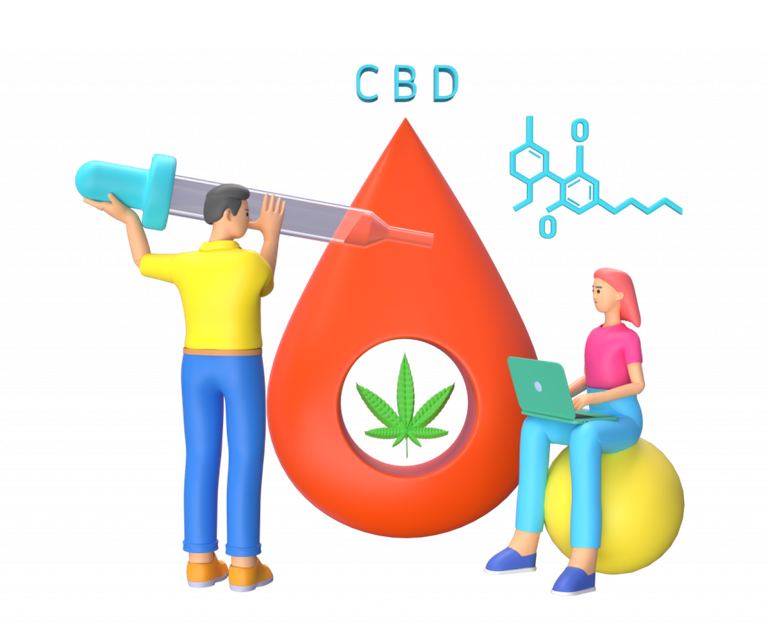"Navigating the Challenges of Cannabis Withdrawal: A Journey from Dependence to Renewed Health
I have a neighbor who actually likes to consume cannabis (Weed) of different types and would take it all day long. He just finished with his University education and has been taking this for the longest i have known him but now he just got a job that will be paying 6 figures, thanks to his parent connections but then he has a problem; He was going to do a drug test. I overheard him telling his mum to do something about it but I guess their hands are tied.
I want's to ditch smoking but I can tell that he is having second thoughts because he doesn't want to suffer from withdrawal symptoms. You might think that he wouldn't suffer from withdrawal symptoms since he only took cannabis, but you are wrong because, anything that is consumed and alters the brain or body operation especially when it is a routine habit, is surely going to have withdrawal symptoms. The withdrawal isn't only for smoking, it is important to state that it is the same for the bear one drinks, or even the cup of coffee that one have regularly.
Before we can discuss marijuana withdrawal, it is right that we discuss marijuana impact in the body. Marijuana is one recreational substance for people and this is as a result of the chemical compound THC in it. In the brain, THC is seen like normal because it is similar to anandamide which is involved in key processes such as memory, focus, Coordination, time perception, and even as part of the reward system. Since the brain cannot tell the difference between THC and anadamide, THC binds with the brain cannabinoid receptors in the brain neuron.
Actually, this neighbor of mine consumes cannabis in different form including smoking, vaping, eating, and brewing in tea. The level at which the cannabis from these method would interact with the body and how quickly will differ depending on how it got into the body, also, the dosage and the strains also determine its effectiveness. When cannabis is taken, the hippocampus is altered, also the orbital frontal cortex is alter while damping the basal ganglia, and the cerebellum and this is why balance coordination, posture, and other effects are observed.
For addiction, the cannabinoid receptor is being blocked by THC which should have been blocked by anandamide when there is a reward signal by the brain but when people smoke and the cannabinoid receptor is being covered by THC, i makes it look like the brain is being rewarded for taking the substance thereby releasing dopamine, the reward chemical of the brain to feel-good.
Just like marijuana produces dopamine, so does exercise, fun activities, video games, and sex do produce dopamine but marijuana produces it more and that is why people are dependent on it when they begin to use. Asides from THC, cannabis also includes CBD but this is sold in different over the counter items. In one word, it is cannabis with THC not included.
When a person who takes weed regularly stops taking weed, there is going to be a noticeable improvement in brain function since the hippocampus and the orbital frontal cortex aren't fired by the THC chemicals anymore. This causes increased memory ability and ability to focus. People who have also quit smoking have reported improved motivation and renewed energy level compared to the depressive effect of cannabis on the body. Except from the beneficial neurological effect of cannabis, people who quit smoking enjoy improved respiration and oxygenated blood.
While there are benefits to quitting cannabis intake, there is also the withdrawal process. Unlike Opioid withdrawal, cannabis withdrawal can't lead to death. He can start to become irritable and on the edge with everything around him including simple conversations. if the lungs haven't been damaged by smoking, he would begin to experience better breathing but this isn't the end with the withdrawal symptoms.
In few days, the person would begin to experience chills, sweat, headaches, muscle pains, relentlessness, mood swing, and appetite loss. The person can begin to experience depressive symptoms as well and this is the point where there is a relapse and the person will want to go back to consuming. At this point, the patient should be treated symptomatically. In this same week, the brain receptors start to return to normal and after about 2 weeks, his symptoms start to go away, except for insomnia. It is important that the patient start to cultivate a sleep routine and do lots of exercise. This will help with overcome the withdrawal symptoms while taking enough water, and over the counter medications for flu-like symptoms.
Establishing a sleep routine, engaging in regular exercise, staying hydrated, and using over-the-counter medications for flu-like symptoms can aid in overcoming withdrawal and transitioning to a cannabis-free lifestyle. While withdrawal may pose challenges, the long-term benefits of improved health and career prospects make it a worthwhile endeavor.
https://www.npr.org/sections/13.7/2013/12/02/248089436
https://nida.nih.gov/publications/drugfacts/cannabis-marijuana
https://dana.org/resources/right-brain-left-brain-a-misnomer/
https://www.health.harvard.edu/blog/right-brainleft-brain-right-2017082512222
https://www.ncbi.nlm.nih.gov/pmc/articles/PMC9110555/
https://americanaddictioncenters.org/withdrawal-timelines-treatments/weed-marijuana
https://www.wearewithyou.org.uk/help-and-advice/advice-you/coping-cannabis-weed-withdrawal-symptoms/


Addiction to drugs is a terrible thing, it's a good thing your neighbor is making an effort to stop, I believe it begins with intentions.
Thanks for your contribution to the STEMsocial community. Feel free to join us on discord to get to know the rest of us!
Please consider delegating to the @stemsocial account (85% of the curation rewards are returned).
Thanks for including @stemsocial as a beneficiary, which gives you stronger support.